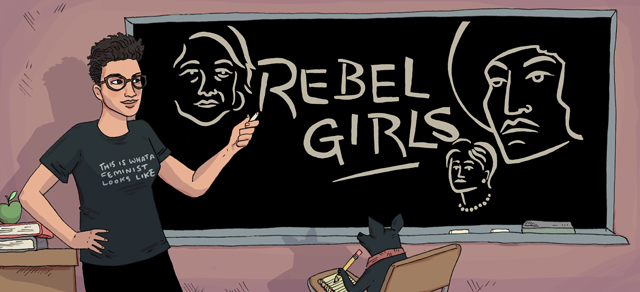
Header by Rory Midhani
And then there were five.

With the inclusion of CNN’s Martha Raddatz on the roster of this year’s presidential debate moderators, women have officially hit the lowest bar for inclusion ever: We’ll now have been five out of a much larger number of men who got to interact with presidential candidates, field their questions, and sigh as they surpass their previously declared time limits for vocalizing their ideas about the world on the national stage at said debates!

Raddatz is following in the footsteps of Pauline Frederick of NPR and Barbara Walters of ABC News, who moderated a debate each in 1976 and, for Walters, again in 1984; Carole Simpson of ABC News, who moderated in 1992; and Candy Crowley of CNN, who moderated in 2012.
The issue of gender in politics has been, as of late, playing out in fights centered on the debate stage. Activists this year pushed during the primaries for moderators to #AskAboutAbortion, and before Monday’s debate that made me claw my eyes out until I bled to death UltraViolet and Feminist Majority launched petitions demanding questions from Lester Holt addressing women’s issues. In 2012, Candy Crowley’s role as moderator came after a petition that gathered over 100,000 signatures.
In a realm like politics where women have been so remarkably erased, silenced, and made altogether absent, activists who push for representation on stage or in the discourse occurring between the people who make it there share the same goal: The idea that inserting women into the presidential debates might make their issues more central and pressing to the men who have, for centuries, regarded themselves smugly as “leaders of the free world.”
But what does a female moderator actually do to shift discourse? What impact have they had? It turns out, looking at their stories and experiences, that gender still permeates the debates — and their ability to have an impact on the conversation.
Please tell me in the comments what questions you’d like me to ask at the next presidential debate.
Pauline Frederick
Ah, our historic first! Pauline Frederick came to the debate stage already a pioneer: She was an NBC News United Nations corespondent for 21 years — the first and only woman at that point to hold a correspondent position for more than a decade — and then became a foreign affairs correspondent for NPR two years before she was asked to moderate. (The best part? “She broke into broadcast journalism in the 1930s, when ABC hired her to cover a forum on how to get a husband.”)
Unfortunately, Frederick’s historic voice was lost when she moderated a debate between Gerald Ford and Jimmy Carter that year — because she wasn’t given the opportunity to actually ask any questions! Instead, she was chaperoned by three men who helped her out by asking all of them, duh. Frederick regarded her role as “kind of a policeman, keeping discipline, introducing, bridging gaps, closing off.” I’m very closed off to the emotions that well up inside of me re: this situation, Pauline, to be honest.
Although she was denied the opportunity to make waves on the debate stage, Frederick went on to remain a boss in her field and a legend among her peers. Before her death, she became the first woman to receive the DuPont and Peabody awards and appeared twice on Gallup’s list of the 10 Most Admired Women.
“She was the first full-fledged woman correspondent and opened doors for women’s acceptance in television and radio journalism,” Beryl Pfizer of NBC told the LA Times when Frederick passed in 1990, “And besides, she was a heck of a person.”
Barbara Walters
Barbara Walters needs no introduction. Walters is a living legend, and her work has torn down walls and opened doors for women in the field of journalism. Unfortunately, she came to the debate stage in the same year as our old friend Pauline Frederick, and faced the same dilemma. Walters, accompanied by three men, asked no questions and was seen but not heard until it was time to thank the men on stage for speaking, which of course nobody thanks men for doing enough.
A week later, ABC News anchor Barbara Walters moderated the final presidential debate between Ford and Carter, though she too was joined by three male colleagues.
In both cases, the women’s only role was to call on the candidates and introduce the male journalists.
“Thank you. Governor Carter, your response, please,” went a typical statement from Walters in that debate. “Thank you. Mr. Maynard, your question to Governor Carter.”
This wrong was righted in 1984, when Walters moderated a debate between Ronald Reagan and Walter Mondale that has since become legend because of Reagan’s poor performance. She was joined again by a panel — one which included Diane Sawyer, noted other woman, who asked questions! — and although she herself didn’t ask said questions, she ran that show like a boss.
Carole Simpson
Carole Simpson moderated a Town Hall Debate in 1992 between George H. W. Bush and Bill Clinton, becoming the first woman of color to fill the role and the woman often mistaken as the first woman to ever moderate a debate. Unlike her predecessors, she wielded a lot of directional power in that debate; unfortunately, much like them, she did not actually get to decide on the questions or ask them herself. Because of the format, Simpson was mostly acting as an “Oprah-style” figure, handing off the mic to audience members who then directed questions to candidates. I heard strangers on the street know a lot more than women in the journalism field about news and issues of the day, anyway, so who cares.
When Simpson reflected on her historic appearance on the national stage for a piece in the Huffington Post, she remarked that she didn’t exactly leave feeling empowered:
Even though Simpson cracked a glass ceiling as the first minority woman to run a presidential debate, the event was not the major feminist breakthrough it seems, she said. The 1992 presidential campaign saw the first “town hall” style debate, which means Simpson’s job mainly consisted of walking through the audience and handing people the microphone so they could ask their own questions.
“They kept saying they wanted an Oprah-style town hall format, so that probably had something to do with them choosing a black woman,” she said. “I was told in my earpiece by a producer, ‘Go interview the lady in the green dress on the left, and now the man in the red sweater.’ I had no control over the questions that were asked, or who asked, or in what order. I was like a traffic cop.”
If she could have asked Bush her own question, it wouldn’t have been the one everyone else was asking about his involvement in the Iran-Contra affair.
“I knew him quite well and had covered him for eight years, and I heard him say one thing to white suburban audiences and then go into minority communities and say something quite different,” she said. “I wanted to ask him, ‘What is that all about?’”
Candy Crowley
This brings us, then, to 2012. Two decades after the last appearance by a woman at a presidential debate, a petition campaign brought Candy Crowley to a debate between Barack Obama and Mitt Romney. Crowley is perhaps the best example of the kind of hell-raising a woman can do, and perhaps the most deserving of the four women in this post to have the Kanye West song “Power” reworked into the Lil Carmen version (“no one bitch should have all that power”) and played in a montage about her life.
When Crowley, who actually did get to ask questions of the big, scary men on the stage, dared to fact-check Romney in that debate, Republicans lost their minds. Never mind the fact that um, facts matter! And never mind the fact that voters often don’t know the true information being obscured on debate stages. And never mind the fact that women are smart and should rule the world and that information isn’t partisan! No! Obviously, it was time for a witch hunt.
It isn’t just a five-word fact-check, though, which sets Crowley apart. It’s that despite the same sexist hurdles her predecessors faced — being put on stage to moderate a “Town Hall” style debate, for example, or, y’know, being the only woman in the room, for another — Crowley was openly insistent that she would inject herself into the debate. She didn’t want to relinquish direction or control. She wanted to run that god damn show. And yeah, I mean, it goes without saying, but: A bunch of men hated her for it afterward. Feminism!
Rebel Girls is a column about women’s studies, the feminist movement, and the historical intersections of both of them. It’s kind of like taking a class, but better – because you don’t have to wear pants. To contact your professor privately, email carmen at autostraddle dot com. Ask questions about the lesson in the comments!


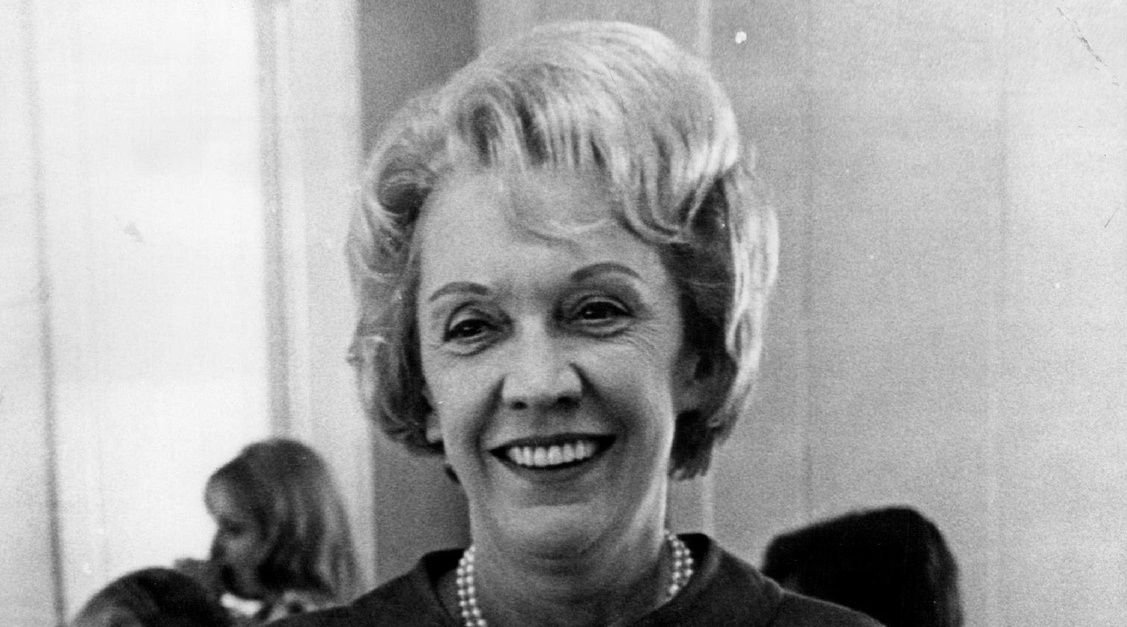
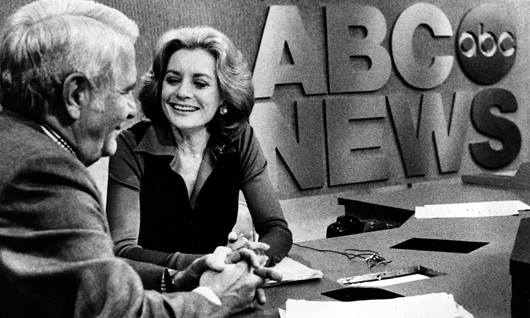
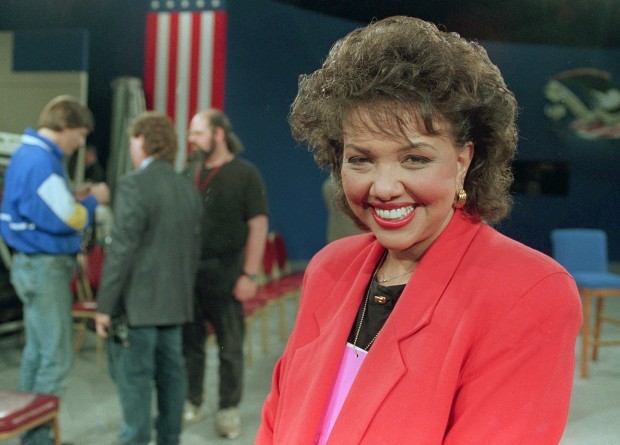
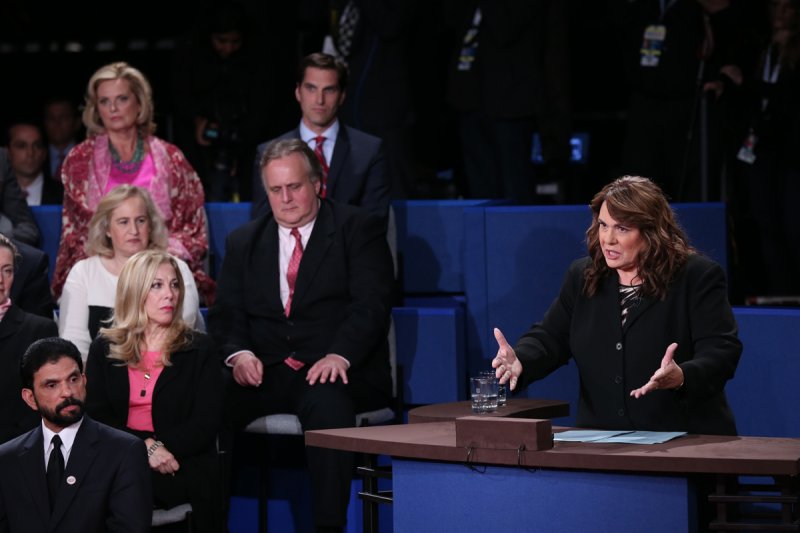

FWIW, I’d be really surprised if abortion didn’t come up in Tuesday’s vice presidential debate between Mike “I’ve never met an abortion restriction I didn’t love” Pence and Tim “I’m personally pro-life but publicly pro-choice” Kaine.
I love this!! Also, this article prompted me to look up the history of the presidential debate and I discovered two things. One: the presidential debate was created/run by the League of Women Voters, who were usher away from it by the Dem/Rep parties when the League got too pushy with their lady-thoughts. Two: Lincoln actually started the first public debate because he followed his opponents around on their campaign trail, heckling them from the audience about their opinions on slavery. Ha!
In other words, only one woman has ever actually sat down to moderate a debate the way Lester Holt did the other night. And she was ripped apart for it.
I’m so sick of our history being ‘but look! We had these tiny victories and should take what we can get and celebrate it!’ Not that we shouldn’t still – I’m glad this article exists, I’m grateful for the history. But come on, men. What the hell.
Preach.
I hate to say this but with Trump being Trump it doesn’t matter if it is the Pope or The Queen of England. He is just too unpredictable and won’t shut up or calm down. Lester Holt had so little control of him it wasn’t funny. Anyone trying to get Trump to obey any sort of rule and wait his turn will find its just impossible. He won’t listen to anyone. As we have seen asking to moderate a debate with Trump in it is like falling on the sword. No matter what you won’t win.